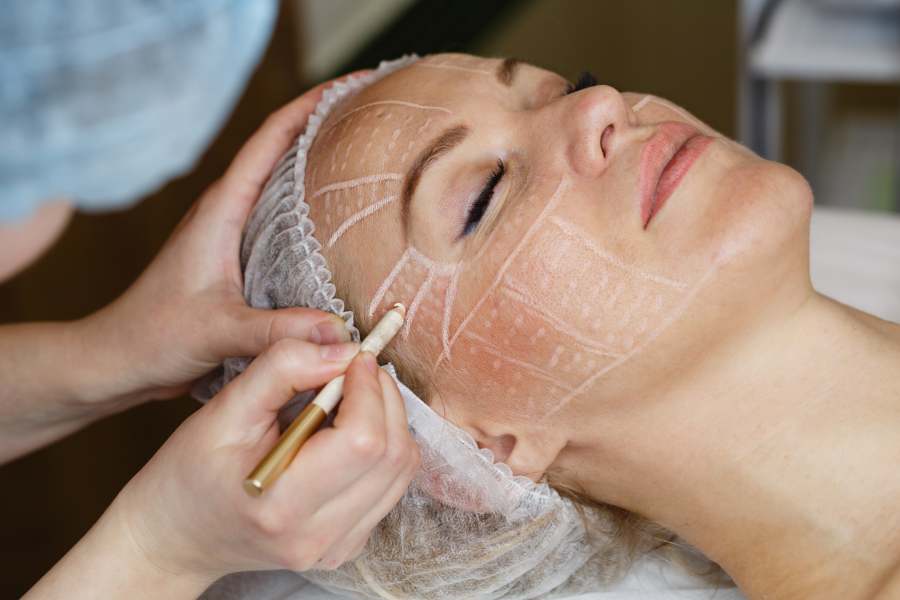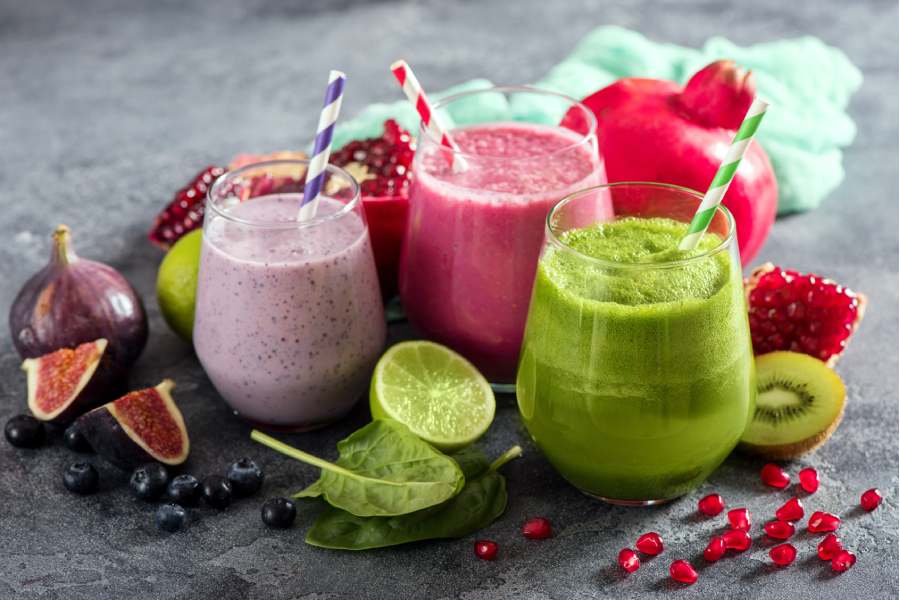With medical advancement today, even aging signs may be reversible. For example, facelift surgery is among the best cosmetic procedures to reverse aging. Also, an important part of its success is knowing what to eat after facelift surgery.
Sometimes people forget that the food they eat also affects how fast the first aging signs show. This is why learning how to provide the nourishment your body needs is important. Proper nutrition is necessary during your recovery after facelift surgery.
[ez-toc]

Source: shutterstock.com/ Photo Contributor: Vagengeim
Facelift Surgery: Slowing Down Aging Signs
While aging is inevitable, it doesn’t mean that there aren’t any ways to prolong the process. A facelift is among the most advanced and trusted cosmetic procedures for reversing aging signs.
Choosing an experienced surgeon is important when getting facelift surgery. The facelift procedure is complex and known for showing the best aesthetic results. This means that an inexperienced surgeon may cause more harm than good.
During your first consultation with the surgeon, ask questions about their experience and credentials. The surgeon will tell you about the procedure and give you instructions to follow before and after the facelift.
The instructions include what to eat, what not to eat, to stop smoking, and others. It is important to follow the instructions to achieve the best results.
What to Eat After Facelift Surgery?
Patients are often unaware of food’s importance in their recovery. Getting proper nutrition and following the instructions you get from the surgeon post-op is the best way to achieve a quick recovery.
It is important to note that due to the invasiveness of the surgery, you might need to consume soft food post-procedure. Food that is hard to chew may cause you discomfort and even pain because of the swelling in your face.
Once the swelling reduces, you may start introducing harder food into your diet. Soft foods that you may eat after a facelift surgery include:
- soups
- smoothies
- eggs
- softer fruits pre-cut into small pieces
Additionally, it is important to know that preparing ahead of time is also crucial to recovery.
Start eating healthy food before the facelift
Changing your diet four to six weeks before your procedure may make the recovery smoother and easier. By introducing healthy changes in your diet, your body will handle the transition easier.
Also, eating healthy in advance might reduce your cravings for processed food post-op. Your body may adjust to the new diet. You can start a healthier diet by replacing processed foods with whole foods.
Whole foods are without added sugars, preservatives, fats, and artificial colors and flavors. Some healthy foods to add to your diet both pre and post-op are the following:
- Vegetables and fruits
- Lean meats
- Low-fat and low-sodium dairy products
- Low-sodium dressings
Source: shutterstock.com/ Photo Contributor: Ground Picture
Make a meal plan in advance
Because facelift surgery is complex, you will likely have difficulty preparing food while trying to heal. If you live with a partner, they may take care of food prep during your recovery. But, if you live on your own, you can meal prep in advance.
For example, you can cook a week’s worth of nutritious meals. With meal prep, you may not have to worry about cooking during the initial recovery period. Some tips for making your meal plan are the following:
- You can start by cooking a few pots of staple foods, including brown rice or beans. Steam vegetables, and make some dressings. After you are done, you can layer the food in different containers in various ways.
- Another delicious and soft meal choice is smoothies. They are easy to prepare, and you can use various fruits.
- Put the food that you plan to eat first in your refrigerator.
- Freeze the rest of the food.
Importance of Proper Nutrition During Facelift Recovery
After facelift surgery, the key role in healing is the recovery period. But, for the body to be able to heal fast and well, it needs proper nutrition. Following the facelift surgery, you may experience swelling and inflammation.
Swelling and inflammation are natural responses to the physical trauma your body incurs during surgery. Your surgeon may prescribe you pain medication if you experience excessive swelling and inflammation, as they can cause pain.
However, too much swelling and inflammation may hinder healing, so proper nutrition is necessary.
Eating antioxidant-rich foods helps reduce inflammation and swelling while promoting healthy skin. Berries are known for their antioxidant properties, so stock up on them.
Nutritional Guidelines Following Facelift Surgery
Following your facelift surgery, as we briefly mentioned, you can eat soft foods. We recommend soft foods after the procedure as they are easy to chew and will not cause discomfort. Your eating plan post-facelift operation may include the following:
- Soups. They are excellent food choices after a facelift, as they are filling. Cream-based or pureed soups are nutritious and ideal for satiating hunger. Just let the soup cool down before eating it to avoid burning yourself.
- Eggs. During your initial recovery, it’s not recommended to consume meat. However, eggs are a great protein source. Plus, you can cook eggs in different ways. Make yourself an omelet or scrambled eggs, or soft boil them.
- Smoothies. Eating smoothies during your recovery is a great way to give your body the nutrients and antioxidants it needs to heal fast.
- Pre-cut fruits and vegetables. The fruits and vegetables should be softer and pre-cut into smaller pieces to make eating easier. Even if soft, larger pieces will be challenging to chew immediately after your facelift.

Source: shutterstock.com/ Photo Contributor: Alexandra Anschiz
Foods to Promote Healing and Reduce Inflammation
Many healthy foods promote a fast recovery and reduce inflammation after facelift surgery.
We recommend incorporating the foods into your diet even before surgery for better results after your facelift surgery. Foods that reduce inflammation may help you heal faster.
Dark green leafy vegetables
Known as nature’s multivitamin, green leafy vegetables like kale, spinach, and collards are abundant in vitamins A, C, E, and K.
Adding vegetables to your diet gives your body the nourishment it needs during recovery. Because of the components present in these vegetables, including minerals, vitamins, and carotenoids, they provide many health benefits.
Dark green leafy vegetables act as antioxidants in the body, which helps with inflammation. Dark green leafy vegetables are also a great source of fiber and minerals like calcium, iron, and magnesium.
Fruits
Fruits like cherries, citrus, pomegranate, and various berries have antioxidant properties that may help reduce inflammation.
Especially helpful during your recovery period may be eating red fruits like:
- strawberries
- blueberries
- blackberries
Berries are rich in antioxidants and vitamin C, meaning they may help with inflammation. Vitamin C may help rebuild collagen and soft tissue so that your incisions heal faster.
Fish, nuts, and oils
Healthy fats are crucial for reducing inflammation and the risk of blood clots after your facelift surgery. Your recovery after a facelift surgery may be faster if you eat:
- olive oil
- avocados
- fish
- nuts
- flaxseed oil
These foods contain omega-3 fatty acids, which are essential fats the body needs but can only get from food.
Protein
Protein is important for nutrition, muscle, skin, and bone health during your recovery. It is important to consume food that is rich in protein but low in saturated fat. Foods with high protein include lean meats such as chicken, seafood, and lean pork.
Protein may speed up your recovery time and help with muscle damage repair, tissue regeneration, and wound healing. Avoid red meat as it is high in saturated fat and may increase cardiovascular mortality risk.
Adequate Hydration and Its Impact on Recovery
Proper hydration is important for everyone’s health. But after surgery, your body needs even more for healing. After your facelift surgery, you should drink 88 ounces or 11 cups of water daily to aid your recovery.
During recovery, hydration may help to:
- Prevent infection
- Lubricate joints
- Regulate body temperature
- Deliver nutrients to cells
- Improve your energy levels

Source: shutterstock.com/ Photo Contributor: Ro_ksy
Foods to Avoid or Limit During the Initial Recovery Period
After facelift surgery, your body has to be in top shape to heal faster. Especially during the initial recovery period, there are certain things that you should limit or remove from your diet.
Foods high in sodium cause fluid retention, which may lead to swelling around the incision. Reducing sodium intake after surgery may promote faster healing, reducing the recovery time.
Besides foods with sodium, you should also reduce food high in refined sugar and carbohydrates. Refined sugar and carbohydrates may suppress your immune function and promote inflammation.
Frequently Asked Questions
How long after facelift can I eat solids?
After at least two days post-facelift, you may start eating soft food. But if you feel pain when chewing, stick to liquid food for the first week. You can start eating hard, solid food after the third week of your recovery.
Can I drink alcohol before and after a facelift surgery?
Drinking alcohol may increase bleeding after your facelift surgery, so you must limit intake. Take a break from drinking before and during your recovery period for better results.
How long is the recovery after the facelift?
Depending on how fast you heal, the recovery after a facelift may last from two to four weeks. If you follow your surgeon’s instructions, the healing will be faster. Provide your body with the nutrition it needs by making a meal plan on what to eat after facelift surgery.
